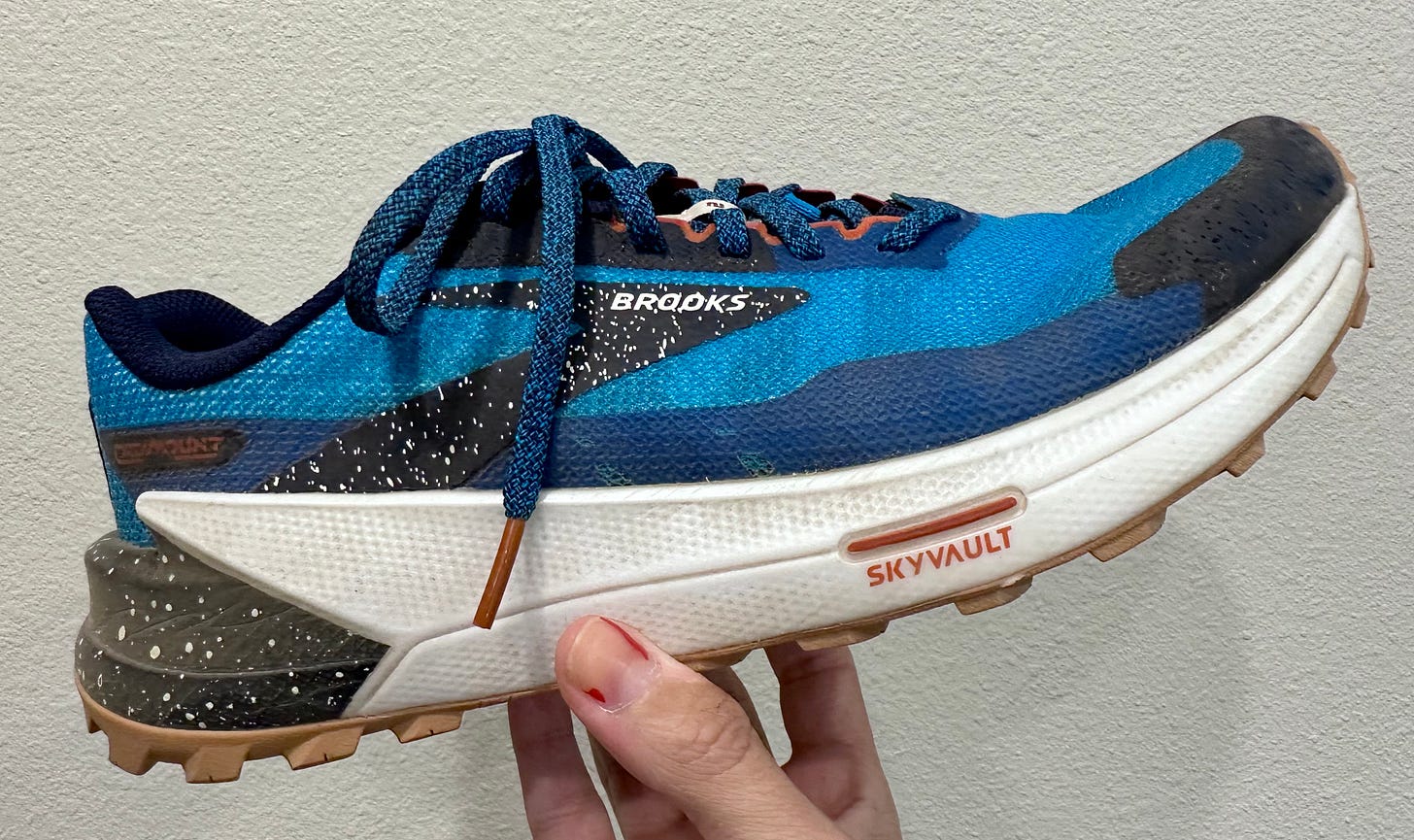Stress Is Stress Is Stress
What does the phrase “stress is stress” actually mean for your running?
I went into the 2022 Berlin Marathon ready to PR. So I couldn’t really understand why the wheels came off at mile eight. I knew attempting to run my fastest marathon time wasn’t exactly going to be comfortable, and I knew I was going to have to dig deep to find the mental toughness to push myself out of my comfort zone. Except, when I tried to dip into that well, I found that it was already empty.
It took a lot of reflection after that race to realize what went wrong. But once I looked past the training (which was fine) and my diet (which, let’s be honest, could be better, but wasn’t terrible), I had to face the fact that the constant stress I was living with due to family estrangement had completely sapped my emotional and mental reserves.
Stressors are everywhere, and they can be different for everyone. And whether they’re physical or psychological, they elicit a stress response:
“A stress response is a cascade of neurological and hormonal activity that initiates physiological changes to help you survive,” write Emily Nagoski, Ph.D., and Amelisa Nagoski, DMA, in the book Burnout. “Your heart beats faster, so your blood pumps harder, so your blood pressure incfeases and you breathe more quickly (measures of cardiovascular functioning are a common way researchers study stress). Your muscles tense; your sensitivity to pain diminishes; your attention is alert and vigilant, focus on short-term, here-and-now thinking; your senses are heightened; your memory shifts to channel its functioning to the narrow band of experience and knowledge most immediately relevant to this stressor. … This complex, multisystem response has one primary goal: to move oxygen and fuel into your muscles, in anticipation of the need to escape.”
If this sounds a little bit like exercise, you’re right. Exercise is a stressor, in that it activates the same systems involved in responding to an external threat, increasing your heart rate, blood pressure, and levels of cortisol AKA the stress hormone.
Regular physical activity can be a good stressor, because it can produce beneficial adaptations that allow you to respond to acute stress—think: a wild animal chasing you—more effectively. Cortisol isn’t inherently bad; it actually boosts your energy (whether that’s to help you respond to a threat or help power you through your workout).
The problem: Too many people are living in a state of chronic stress—whether that comes from financial worries, family drama, pressure at work, or self-criticism—and your body can only handle elevated cortisol levels for so long, Major Allison Brager, Ph.D., a neuroscientist with the U.S. Army who studies survival under extreme conditions, told me for an article in Shape. "When you're in a prolonged state of high stress, your cortisol production gets so unbalanced that it flips the switch and you start experiencing fatigue and burnout," she explained.
OK, so we’re all overstressed. What does that have to do with your training? Well, stress is stress, physical or emotional, external or internal; your body can't tell the difference. It’s called “allostatic load,” according to research published in Psychotherapy and Psychosomatics; once your cumulative burden of stress exceeds your ability to cope, it will lead to poorer health outcomes.
Let’s say it’s your busy season at work, and you’ve been clocking overtime every day for weeks because your boss is constantly piling on more urgent tasks for you to complete. But you’re also training for a marathon and don’t want to miss or adjust your workouts. So your stress levels are already elevated at work, then you go out and do a hard workout. That workout is probably going to feel miserable, because your body is already in survival mode.
I’m not saying exercise isn’t a powerful tool for stress relief. The research around exercise and stress does show that staying active will help you better handle stressors. But it’s important to understand that that exercise is also a stressor, and overdoing it when you’re already physically or emotionally maxed out can do more damage than good.
The research backs that up: Chronic psychological stress impaired recovery of muscular function in a 2014 study published in The Journal of Strength & Conditioning Research. And negative life events not only impaired recovery, they reduced running economy in a 2016 study published in the International Journal of Sports Medicine. Plus, people with higher stress levels failed to show fitness improvements over a two-week period, a 2012 study in Frontiers in Physiology found (obviously, that’s a very short amount of time for fitness gains, but you get the point).
When you’re stressed, recovery becomes extra important. That may look like an extra day between workouts, or even skipping a workout entirely. “Recovery is essentially a timeout,” Malachy McHugh, an exercise physiologist at the Nicholas Institute of Sports Medicine and Athletic Trauma Lenox Hill Hospital, told me for an article in Runner’s World. When you make time for recovery, “you’re forcing your body to relax in a way that makes you feel good and promotes rest.” Stress activates your body’s sympathetic nervous system, AKA your “fight or flight” response, while recovery shifts your body into a “rest and digest” response courtesy of your parasympathetic nervous system.
This is why listening to your body is so important. Running doesn’t happen in a vacuum. Your life will affect your training. And if you don’t look at your training within the context of everything else going on in your life, especially when you’re dealing with other kinds of stress, your training will likely become unproductive. It will take you longer to recover, you’ll become increasingly exhausted and burnt out, and you put yourself at an increased risk for injury. And once you’re burned out or injured, there’s no way for you to tap into the stress-relieving benefits of exercise.
the rundown
Brooks Catamount 2
I first got to test the second iteration of Brooks’ lightweight trail shoe, the Catamount 2, in Seattle a few weeks ago, but I finally got a chance to log some more miles in it back in Colorado. I love how it feels on packed dirt and loose gravel, but I wouldn’t use it on more technical terrain; I know most trail runners prefer to really feel the ground when they run, but I felt a little too much on rockier trails (the arch of my foot was a little sore after multiple runs from rocks digging into it). That said, the traction is excellent, I love how comfortable the fit is, and it was so nice to run in such a light trail shoe! FWIW, the photo above is the men’s colorway, which I much prefer to the women’s pink.
Emma Bates on ‘Ali on the Run’ Podcast
I know, I know, I’m late to this Boston Marathon podcast recap with Emma Bates. But I finally had a chance to listen to it last week, and—while Bates delivered a phenomenal performance and I think we can all learn from her pre-race confidence—what I loved most about this particular conversation was what she shared about her relationship with her coach, Joe Bosshard. Bates clearly places a lot of trust in Bosshard’s training, and was very open about how his belief in her motivated her. That kind of faith between two people can lead to some really incredible things (as we saw in Boston), and I really appreciate Bates talking about how important that partnership is to her.
Up to Speed: The Groundbreaking Science of Women Athletes by Christine Yu
Too often, women are overlooked in sports science—which means the research they’re basing their training, nutrition, etc. on might not actually apply to them. In this heavily researched book, Yu breaks down the sex and gender bias baked in athletics, and what’s being done (or needs to be done) to provide better education, access, resources, exposure, and training to female athletes. It’s a must-read for coaches and athletes, and you can also listen to Yu on the “I’ll Have Another” podcast.
The 2023 Female Athlete Health Report Is Unsettling
The Kyniska Advocacy Group with Project Red-S released its 2023 Female Athlete Health Report, and there were some startling statistics about the female sports experience, especially related to body image. For one, 74 percent of the athletes surveyed have felt as though they do not look like an athlete, and 43 percent said they have had less enjoyment from exercise because they worried about how they look. Plus, while 50 percent agreed that they have consciously restricted their food intake in order to improve their performance, 52 percent did so in order "to fit in or look the part in their sport.” This just makes me sad; I wish we could leave this kind of mentality in the past already!







Thanks for speaking out about life stress affecting performance. The last couple years I watched my pup battle cancer and even though I knew this was affecting me deeply at the time I didn’t realize how much it affected my running performance. I only saw myself getting slower and struggling to meet my expectations. I blamed coaches when reality I was heart broken.